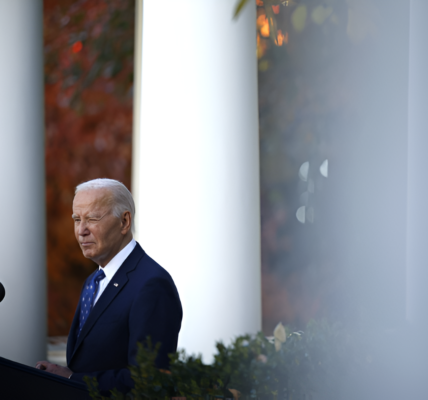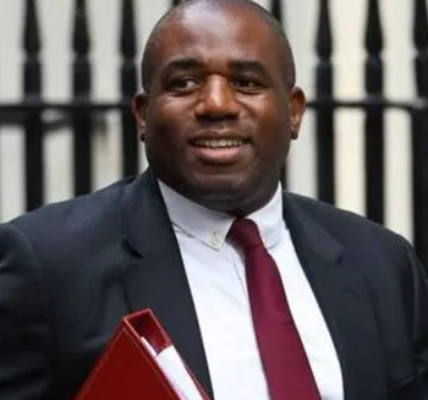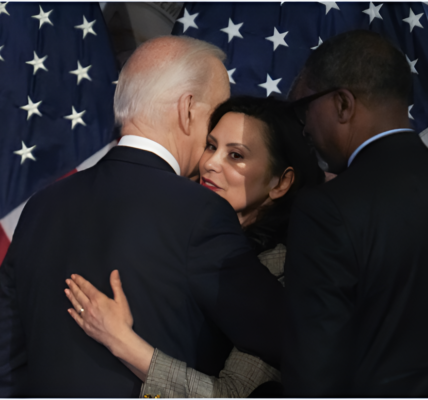
Earlier this month, at Harvard’s Institute of Politics during the quadrennial campaign managers’ conference, I spent nearly an hour with two of the key architects behind Donald Trump’s stunning presidential victory: co-campaign manager Chris LaCivita and chief pollster Tony Fabrizio.
LaCivita and Fabrizio are a seasoned duo, veterans of Republican campaigns spanning decades. Fabrizio, the elder statesman of the two, cut his teeth on Bob Dole’s 1996 presidential bid, while LaCivita, a pugnacious Marine and Purple Heart recipient, made national waves in 2004 with the controversial Swift Boat Veterans for Truth campaign against John Kerry.
“When Harris strategist David Plouffe didn’t show up, I almost brought his book, A Citizen’s Guide to Beating Donald Trump, as a prop,” LaCivita quipped, though his usual brashness was tempered.
Their camaraderie, marked by Fabrizio’s steady pragmatism and LaCivita’s fiery resolve, was evident throughout our conversation. Together with co-campaign manager Susie Wiles, they navigated a campaign marked by extraordinary circumstances: multiple indictments, convictions, assassination attempts, and a Democratic opponent switching mid-race.
A ‘Black Swan’ Campaign
“This was a ‘black swan’ election,” LaCivita declared. “If you listed even one of the events we faced—indictments, convictions, assassination attempts—you’d call it extraordinary. Yet we overcame them all.”
Fabrizio agreed but was quick to credit their strategy. “The environment was fertile for a Trump victory, but it needed to be cultivated. The idea that structural factors alone won the race underestimates the campaign’s effort and discipline.”
The Push for the Popular Vote
Trump’s focus extended beyond the Electoral College. “About seven days out, he started asking Susie and me, ‘Do you think I can win the popular vote?’” LaCivita recalled. “That’s when we knew he thought we were going to win overall.”
While Fabrizio admitted the popular vote was a “vanity point,” it carried weight. “Winning it wasn’t essential, but it underscored that 2016 wasn’t a fluke. It showed a genuine movement behind Trump.”
Trump’s Polarizing Rhetoric
In the campaign’s final weeks, Trump made provocative statements, as is his style. Yet Fabrizio and LaCivita saw little fallout.
“The electorate is baked in,” Fabrizio said. “Those tuned out of mainstream media weren’t hearing it, and those who did already had firm opinions about him.”
LaCivita added, “The press overplayed its hand. The constant negativity made voters tune out. They cared about their futures, not Trump’s past.”
The Kamala Harris Factor
Joe Biden’s withdrawal in July briefly shifted the race. “Harris took off like a rocket, with her image improving 20 points,” Fabrizio said. “But her momentum stalled. She couldn’t close the sale.”
LaCivita attributed this to a lack of coherent messaging. “They ran 162 unique ads in the last week alone, compared to our 50. They were scattershot, while we stayed focused.”
A Data-Driven Strategy
Trump’s campaign targeted two voter groups: persuadable voters and low-propensity voters. “We built our campaign around issues persuadables cared about,” LaCivita explained. “Tony’s modeling drove every decision, from messaging to mail campaigns.”
Their approach proved prescient. “Harris’ team thought persuadables were 4-6% of voters. We knew it was closer to 10-12%,” Fabrizio said. “We focused relentlessly on those groups, starting as early as June.”
A Missed Opportunity for Harris
Would Harris have been more successful running a conventional campaign against Trump? LaCivita and Fabrizio think so.
“Instead of labeling him a fascist, she could’ve focused on kitchen-table issues—tax cuts for the rich, threats to entitlements,” Fabrizio suggested. “Voters cared about what Trump could do for them, not about his controversies.”
LaCivita agreed. “Voters accepted Trump for who he is. They knew he could deliver because he already had.”
Looking Ahead
As they reflected on their campaign’s challenges and triumphs, one thing became clear: Trump’s victory wasn’t inevitable. It was a meticulously planned and executed effort, built on understanding the electorate and leveraging every advantage.
For Fabrizio and LaCivita, the 2028 GOP nomination is still anyone’s guess. But for now, they’re content to savor the fruits of their labor—proof that even in a chaotic, unpredictable election, strategy and execution can triumph over the odds.





